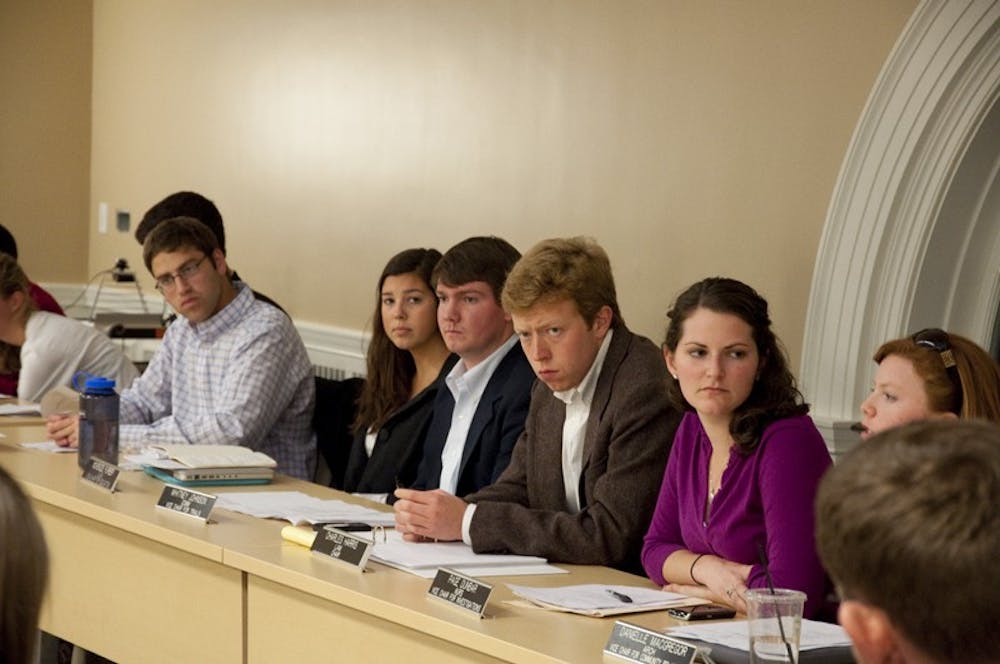The Honor Committee voted last night to extend discussion for another week about amending the definition of "intent."
Throughout the meeting, the Committee focused on this definition of "intent" - a criterion used in determining what qualifies as an honor offense. The discussion was a continuation of last week's meeting.
Vice Chair for Education McKenzie Furber said the colloquial meaning of the word differs from its use in the honor system, adding that this discrepancy creates an issue when attempting to educate students about the honor bylaws and constitution.
"The language should be simpler so that when we talk about it, it's easier to explain," she said.
The Committee is currently debating and considering two options for amending the language and strengthening understanding of the term.
Harris collaborated with Law representative Barlow Mann to provide the language for the first proposal, which would change the term "intent" to "knowledge" in the constitution.
In the bylaws, "Act of Dishonest Intent" would be removed and replaced with criteria stating, "the student knew or should have known the act might be considered an Honor offense."\nMeanwhile, graduate Arts & Sciences representative Alexander Cohen found issue with the phrase "should have known," which is found both in the current constitutional language and remains in the first proposed amendment. He stated that the language could lead to students being convicted not because they knew that an honor offense was committed but because they "should have known."
Cohen argued for the second proposal, which involves a more complex definition of the term "dishonest intent." The revised definition would call for inspection of the factors surrounding a suspected honor offense, thus allowing Committee members to deduce whether a student was aware his actions constituted an honor offense.
"I say let's prove intent," Cohen said. "Let's prove a liar knew that what he said was false and that he knew it wasn't true."
Committee members voiced concerns that allowing students to claim they were not aware of classroom rules or Committee policy could be detrimental to the honor system.
"Intent is nearly impossible to prove," said College representative Greg Siegel, who supported the proposal substituting the term "knowledge" into the criteria.
Mann agreed, noting that students may change their behavior if allowed to claim ignorance.
"People have an incentive to remain ignorant if they know that being ignorant would be beneficial," Mann said.
Any amendments to the Committee's constitution will go before the student body during next semester's University-wide elections. Discussion will continue at the next meeting, which is scheduled for Nov. 28.







